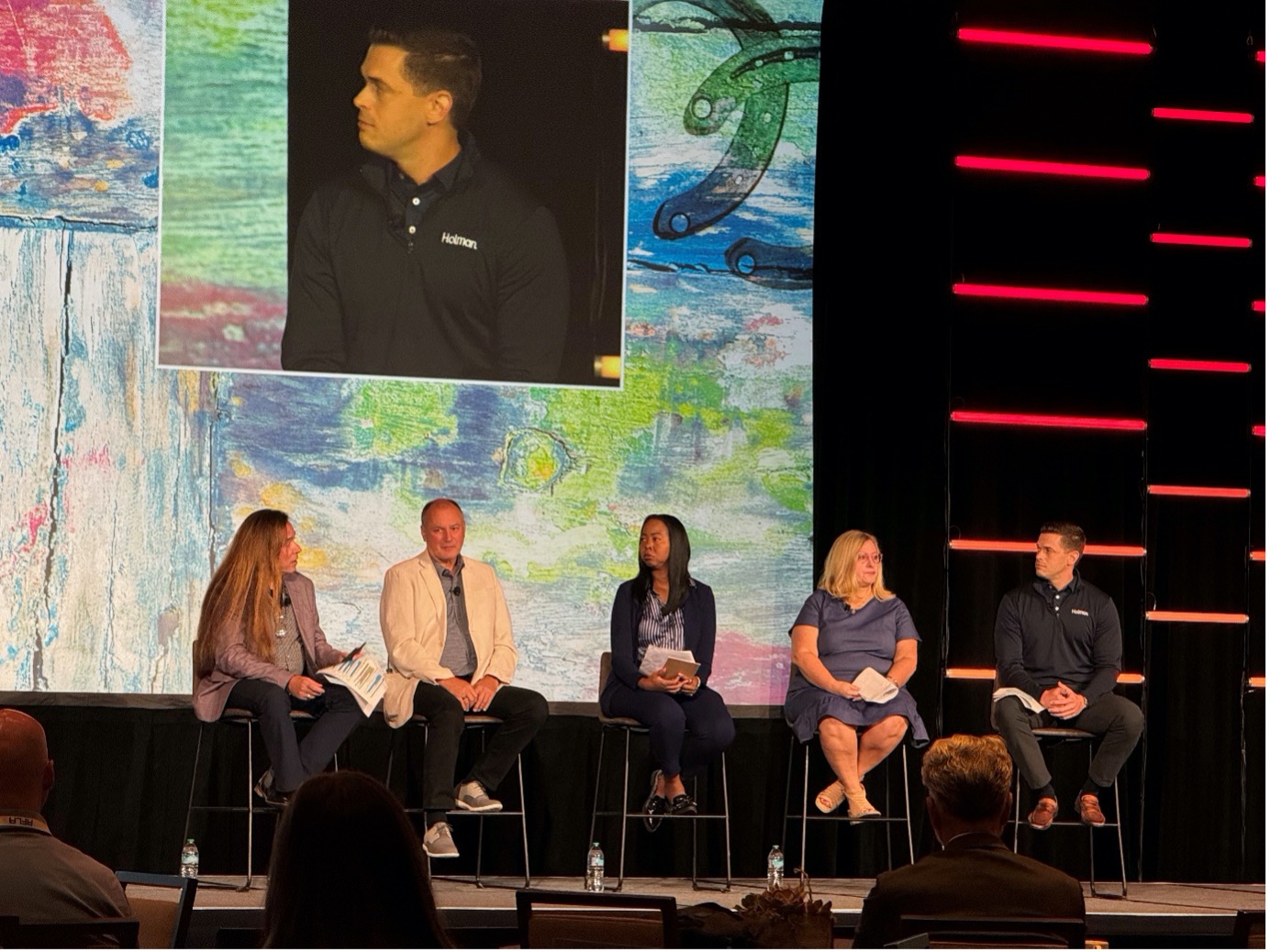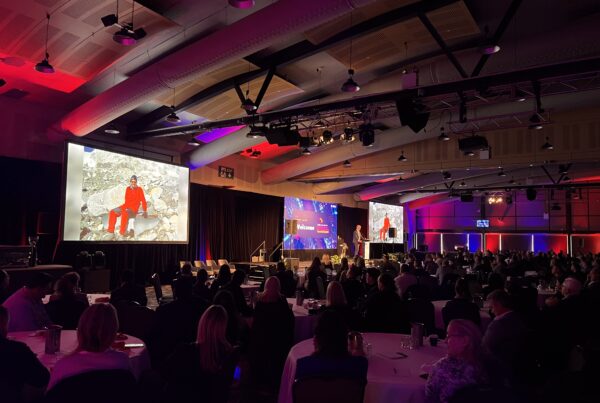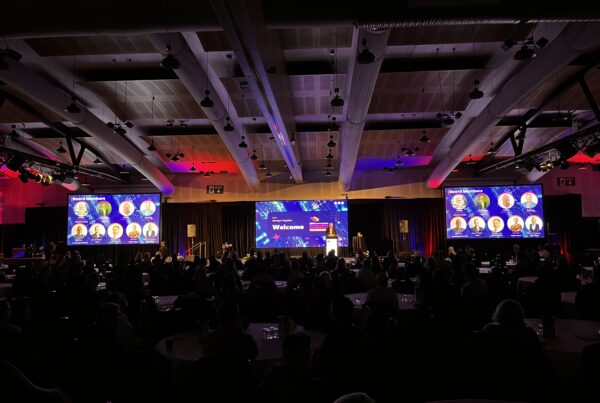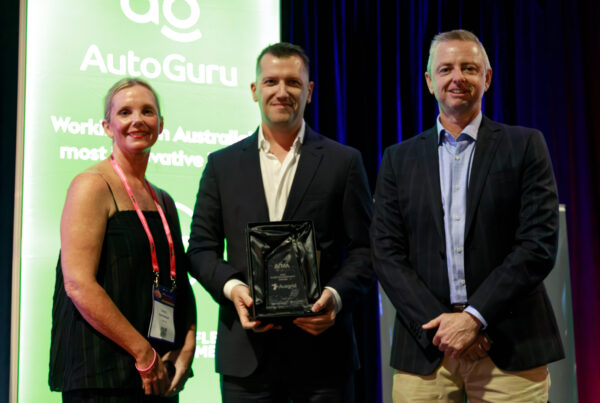Despite the fact that our American friends have their toilet water spinning in the opposite direction and their light switches upside-down, many of their fleet challenges are remarkably similar to those we encounter in Australia and globally. That was my observation while attending the Automotive Fleet Leasing Association (AFLA) conference last month in San Antonio, Texas.
On day two, the standout session for me was the panel discussion moderated by Jim Petrillo, titled “Working Together: Human Resources, Procurement, Finance, and Fleet.” The insights shared during this session resonated deeply, prompting reflections on my own career in fleet management, especially during my time in Local Government. Some points validated my existing understandings, while others made me reconsider how certain challenges could have been approached differently. An undeniable takeaway was this: building a solid business case and effectively selling it to your organisation is a crucial skill for the modern fleet manager.
Understanding Your Audience: Tailoring Approaches for Cross-Departmental Success
One of the session’s key messages was the importance of the fleet manager’s ability to bridge gaps between departments. Whether dealing with HR/WHS, legal/governance, or finance, fleet managers must understand the unique motivations of each. Kimberly Fisher, 2003’s AFLA Fleet Manager of the Year, emphasised how crucial it is to tailor communication when presenting to executive leadership. For example, by focusing on cost-saving opportunities or efficiency gains, fleet managers can align fleet programs with corporate goals.
Procurement is another critical area. As Michael Bieger explained, procurement teams often focus heavily on cost, but fleet managers can enhance their influence by showing how their initiatives contribute to both operational efficiency and long-term savings. Speaking the “language” of each department—whether it is ROI for finance and procurement or risk mitigation for HR and WHS —enables fleet managers to secure the necessary buy-in for their projects.
Building Early Alliances: Securing Key Stakeholders’ Support
A key takeaway from the panel was the fleet manager’s responsibility to proactively engage other departments. Building relationships early with stakeholders, particularly HR and legal, allows for smoother policy implementation. Linda Ellis stressed the importance of collaborating with these teams on an ongoing basis, not just when policy changes are needed. By understanding their priorities, fleet managers can tailor their approach, anticipate concerns, and find common ground for a successful outcome.
The session also highlighted how fleet managers, through relationship-building, can function as change agents. When it comes to contentious issues like telematics or policy enforcement, the fleet manager’s ability to gain the trust of stakeholders ensures smoother deployments and helps avoid internal conflicts during implementation.
Maximising External Partnerships: Elevating Fleet Strategies with Expert Support
Beyond internal relationships, the panel underscored the value of engaging external stakeholders. Fleet managers should tap into the expertise of their Fleet Management Companies (FMC’s, also known as FMO’s in Australia), OEMs, and consultants. These partners provide valuable insights into industry trends, best practices, and emerging technologies like telematics and electric vehicles (EVs).
Jim Spera of Holman mentioned that external partners can be vital in supporting fleet initiatives, particularly in areas like data analysis and safety policy. Leveraging external resources allows fleet managers to make informed decisions that benefit the entire organisation, aligning with both internal objectives and industry standards.
Becoming a Strategic Leader: How Fleet Managers Can Drive Organisational Success
Fleet managers are not just responsible for day-to-day operations; they are in a unique position to influence organisational strategy. By understanding and addressing the needs of different departments, fleet managers can lead initiatives that improve fleet performance, reduce costs, and align with broader corporate goals. This strategic leadership is critical to the success of fleet programs and demonstrates the value of the fleet manager as a key decision-maker within the organisation.
The panel discussion was a powerful reminder of the central role that collaboration and influence play in modern fleet management. The panel contributions of Kimberly Fisher, Linda Ellis, Michael Bieger, and Jim Spera, and moderator Jim Petrillo were invaluable, offering real-world strategies that fleet managers can apply to their own organisations. Their insights demonstrated how understanding the needs of other departments, combined with proactive leadership, is essential for implementing successful fleet initiatives.
A heartfelt thank you to the panellists for sharing their experiences and knowledge, and for emphasising the importance of building relationships, both within and outside the organisation, to drive fleet success.
Did you find this article interesting? Click the ‘heart’ button above to give it a ‘like’!






